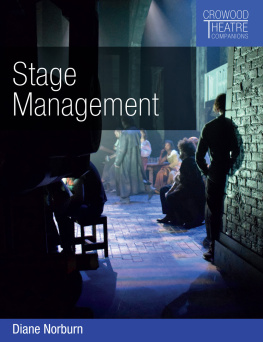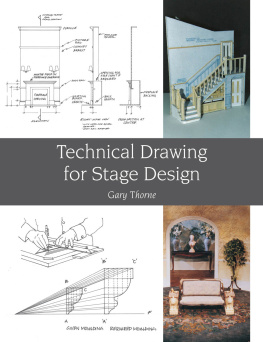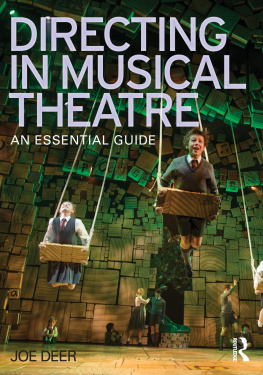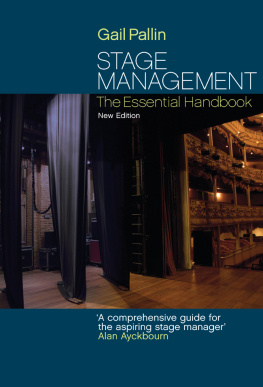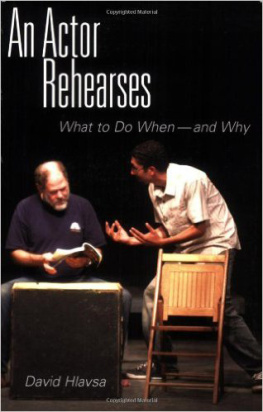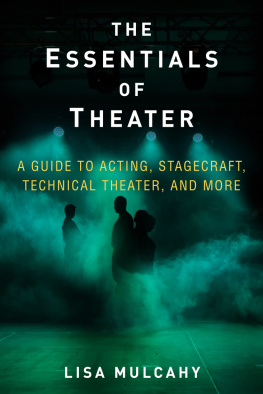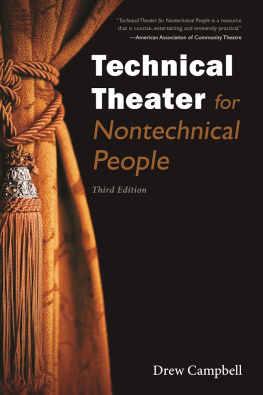Stage Management
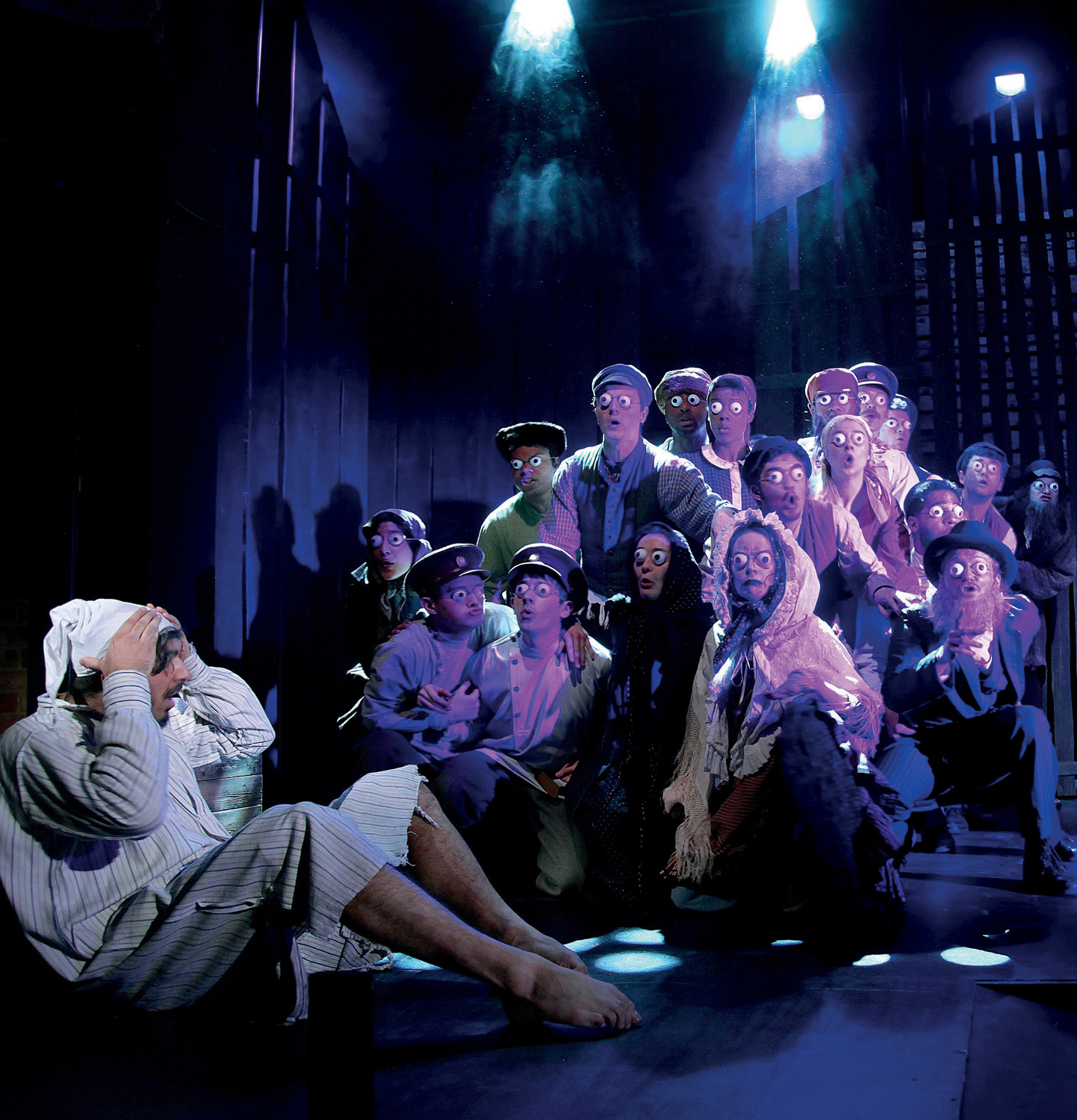
Stage Management
Diane Norburn

THE CROWOOD PRESS
First published in 2018 by
The Crowood Press Ltd
Ramsbury, Marlborough
Wiltshire SN8 2HR
www.crowood.com
This e-book first published in 2018
Diane Norburn 2018
All rights reserved. This e-book is copyright material and must not be copied, reproduced, transferred, distributed, leased, licensed or publicly performed or used in any way except as specifically permitted in writing by the publishers, as allowed under the terms and conditions under which it was purchased or as strictly permitted by applicable copyright law. Any unauthorised distribution or use of thistext may be a direct infringement of the authors and publishers rights, and those responsible may be liable in law accordingly.
British Library Cataloguing-in-Publication Data
A catalogue record for this book is available from the British Library.
ISBN 978 1 78500 444 5
Frontispiece
A production of Fiddler on the Roof. Photo: John Haynes, Designer: Phillip Engleheart
CONTENTS
LIST OF SUPPLIERS
Brodie and Middleton
Theatrical supplies, art and scenic supplies
brodie.net
Tel 0207 836 3289
Data Reprographics
Printed items
datarepro.co.uk
Tel 01784 243996
Film Medical
Medical props
Filmmedical.co.uk
Tel 0208 961 3222
Flints
Specialist theatrical paint and hardware
flints.co.uk
Tel 0207 703 9786
History in the Making
Weaponry, prop and costume hire and armourer
History-making.com
Tel 023 9225 3175 or 023 9226 5743
John Frost Newspapers
johnfrostnewspapers.co.uk
Tel 01797 361952
Keeley Hire
Props and furniture
keeleyhire.co.uk
Tel 01992 464040 or 01992 444584
The National Theatre Prop Hire
nationaltheatre.org.uk
Tel 0207 820 1358
Newman Prop Hire
Furniture and lighting
www.newmanprophire.co.uk
Tel 0208 743 0741
Pigs Might Fly
Stage blood
pigsmightfly.co.uk
Tel 01722 340927
Rc-Annie Ltd
Weaponry, fight direction and courses
rc-annie.com
Tel 0207 820 3933
Russell Beck Studios
Prop makers
russellbeckstudio.co.uk
Tel 0203 241 0000
Superhire Group
Includes Super Hire, Old Times and Modern Props Ltd
Prophireuk.com
Tel 0208 453 3900
ACKNOWLEDGEMENTS
I would like to thank the following people:
Everyone at LAMDA, particularly Joanna Read, Rodney Cottier, Rob Young, Rob Gale and the SMTT staff; the cast of Sucker Punch for their headshots and the Cs, E2s and directors for the production shots; Ian Brown and Mary Papadima. A special thank you to the stage management students past, present (and future). You make me a better stage manager and teach me something new every day. Your work has been invaluable to this book; Kate Jones, thank you for having my back.
Grange Park Opera: Wasfi Kani, Helen Sennett, everyone on Oliver and the best SM team, Laura Deards and Robert Perkins.
BBC TV: The BBC Proms team, Fran Kemp, Michael Ledger, Mei Ye Li and Val Fraser; Angela Young on CBeebies; Edward Gardner and the BBC Symphony Orchestra.
Designers: Roy Bell, Richard Bullwinkle, Nicky Bunch, Norman Coates, Dinah England, Philip Engleheart, Adrian Gee, Richard Kent, Ruari Murchison, Fi Russell, Dora Schweitzer, Nancy Surman and James Turner.
Midge Adams, Jamie Crawford, The Stag Theatre in Sevenoaks, Andrew Killian, Mountview, John Birger and Bill Kenwright.
Finally, thank you to my family and friends. Mum and Dad for your constant support and checking my grammar; David, Martin, Charlotte, Becky, Jake, Sarah, Andrew, Mila and Marnie and the Hs; Tim Oliver and Richard Crawley; Pauline, Mike and my friends at the Dukes; Brian Jones (Osborne), you led the way.
Photo credits: John Haynes and Richard Hubert Smith (see also individual captions).
Every reasonable effort has been made to trace and credit illustration and textual copyright holders. If you own the copyright to an image or quotation appearing in this book and have not been credited, please contact the publisher, who will be pleased to add a credit in any future edition.
ABBRIVIATIONS
To avoid filling the text with long theatrical terms (over 200 instances of deputy stage manager, for example!), the following abbreviations are used in the text:
AD | assistant director |
ASM | assistant stage manager |
BECTU | Broadcasting, Entertainment, Communications and Theatre Union |
CL | centre line |
CM | company manager |
CS | centre stage |
CSM | company stage manager |
DS | downstage |
DSM | deputy stage manager |
FM | floor manager |
FOH | front of house |
HOD | head of department |
IOSH | Institution of Occupational Safety and Health |
ITC | Independent Theatre Council |
LD | lighting designer |
LX | the lighting department |
MD | musical director |
MS | mid stage |
OP | opposite prompt |
OSL | offstage left |
OSR | offstage right |
PM | production manager |
PPE | personal protection equipment |
PS | prompt side |
SM | stage manager |
SND | sound department |
SOLT | Society of London Theatre |
TSM | technical stage manager |
US | upstage |
INTRODUCTION
Many people, even those who work in the theatre industry themselves, do not really know exactly what stage management teams do and what is involved in the job. Other than the props, furniture and set dressing, the work that the stage management department undertakes is behind the scenes and often goes unnoticed. The stage management teams work isnt obviously on show like other departments. There is no set to show off, no lighting to be in awe of or sound to enjoy. Most people do not know that there is someone who is responsible for cueing the technical elements of the production and ensuring that everything happens at the correct time or that a member of the stage management team has planned the scene change. But the work we do in stage management is the glue that holds a production together. Stage management facilitates other peoples creativity and solves problems, encouraging and assisting others to be the best they can be and, whilst the work we do may go unseen, that is the biggest compliment to receive as it means we have done a good job.
Next page
